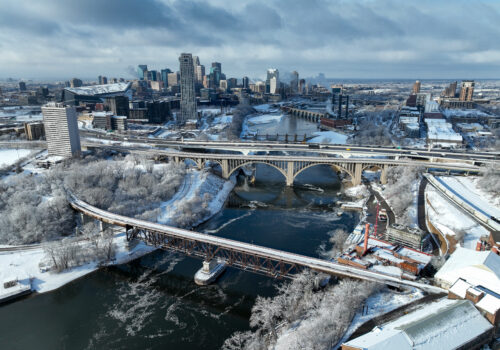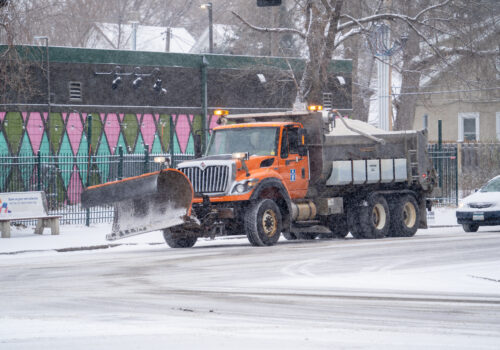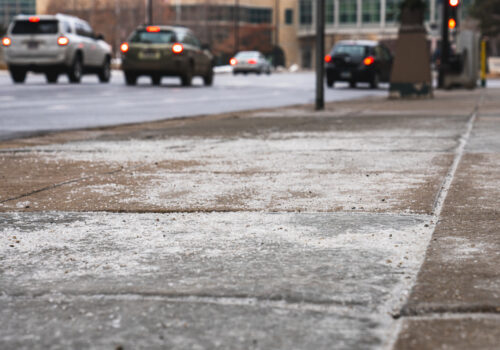News / October 09, 2018
Augsburg, MWMO Partner with Cedar-Riverside Property Owners to Protect Water Quality
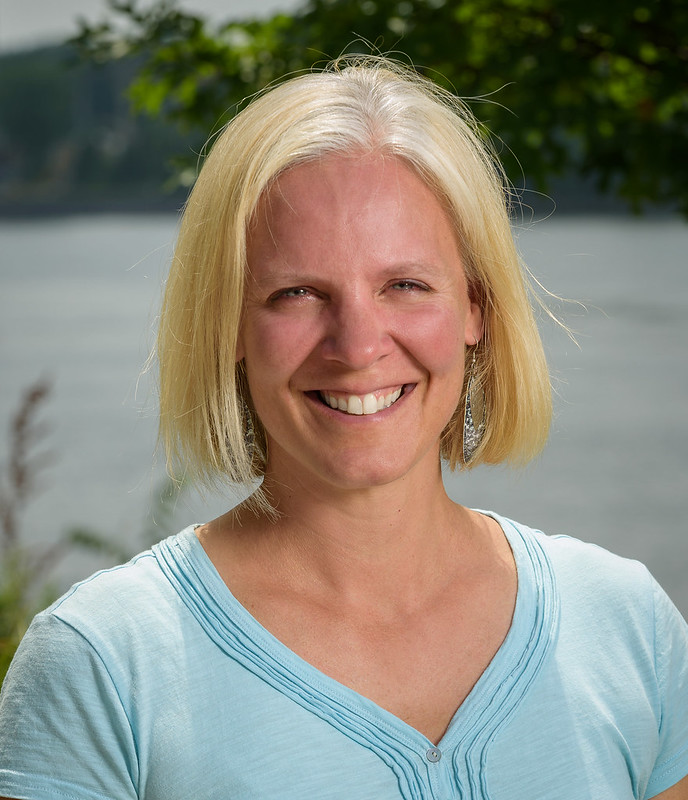
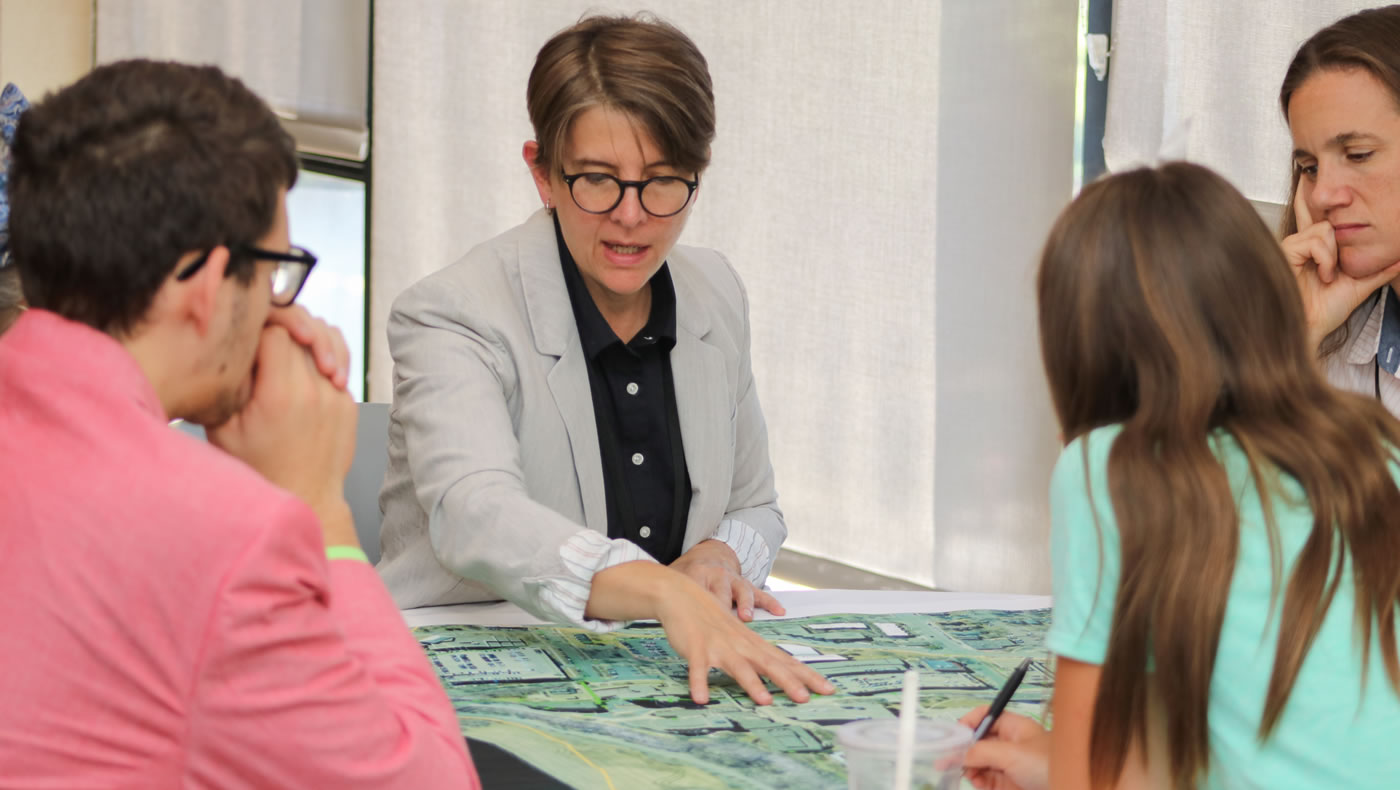
On the first day of the Nobel Peace Prize Forum last month at Augsburg University, a diverse group of stakeholders, including local property managers, stormwater professionals, landscape designers and students, gathered at a special pre-conference workshop. They huddled around maps of Augsburg and several neighboring properties, including the University of Minnesota’s West Bank campus and the iconic Riverside Plaza, and began to sketch out ideas for how these properties could be better managed in ways that would protect water quality in the nearby Mississippi River.
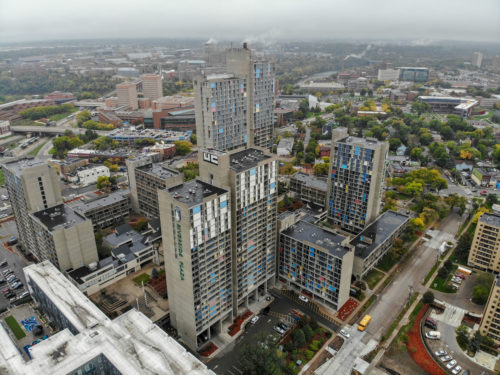
The event marked the culmination of a summer-long workshop series developed by Augsburg and the MWMO. Designed to coincide with the university’s 2018 Nobel Peace Prize Forum, the workshops brought large property owners together with technical experts to share best practices in stormwater management. The series’ ultimate goal was to create a model for a “community of practice” that could motivate, support and sustain a long-term shift toward sustainable stormwater practices. If successful, the effort would also minimize the amount of stormwater and pollutants flowing off of several large properties in Minneapolis’ Cedar-Riverside Neighborhood and into the Mississippi River.
The Nobel Peace Prize Forum provided an ideal setting to explore these ideas. The annual forum provides a platform for the accomplishments of Nobel Peace Prize winners, and invites the community to engage in discussions about ways to promote peace in a complex world. Working in partnership with the Norwegian Nobel Institute and a consortium of colleges, Augsburg has hosted the Forum intermittently since 1989 and permanently since 2012. Forum speakers and workshops are aligned with particular Nobel laureates and are intended to advance their work. The session facilitated by the MWMO was aligned with the work of the 2007 winners, the Intergovernmental Panel on Climate Change (IPCC) and Al Gore, regarding our collective responsibility to respond to threats to our natural environment.
This year’s theme, “Paradox of Peace, Paradox of Water,” focused on the complex relationships between humans and water. The workshop series co-led by Augsburg and the MWMO explored that theme in concrete ways, identifying sets of land management practices for specific locations that could help protect water quality and habitat.
Working Together as Neighbors to Improve Stormwater Practices

The partnership between the MWMO and Augsburg began in early 2018, when Forum director and professor Joe Underhill attended a community meeting about Governor Mark Dayton’s “25 by 25” water quality initiative. Inspired by Dayton’s call to improve water quality 25 percent by 2025, Underhill decided to rally Augsburg’s neighbors in Cedar-Riverside to collaborate and take action. He felt the project would be a perfect fit for the 2018 Forum, but he needed a partner to provide funding, expertise and resources.
Underhill reached out to the MWMO. We were immediately excited to collaborate with Augsburg on this unique project to educate, motivate and mobilize a community of neighbors to protect water quality. Due to their location and the nature of their properties, we recognized the group had the potential to make a significant impact on local water quality in the Mississippi River. If successful, the MWMO and Augsburg believe the project could serve as a model for similar work in other parts of the watershed.
Located in the urban core and bounded on one side by the Mississippi River, Cedar-Riverside is a dense and vibrant community with many large properties, including academic institutions, hospitals, housing complexes and businesses. The presence of these properties, the amount of impervious surfaces and the proximity to the river make this a high-priority area for the MWMO to assist in improving stormwater management and to engage community members in protecting water and habitat.
Underhill and his colleagues reached out to many of their neighbors and invited them to join Augsburg in working toward better stormwater management on each site. They pointed to the collective impact that they could make on reducing the amount of pollution running off into the river by integrating stormwater best management practices into their landscapes. Several neighboring property owners jumped onboard, ready to explore their options. They were intrigued by potential long-term sustainability and cost-savings as well as the potential co-benefits that come with planting more native plants, removing parking lots in favor of green space and trees, and capturing and reusing stormwater.
Workshops Bring Property Owners and Experts Together
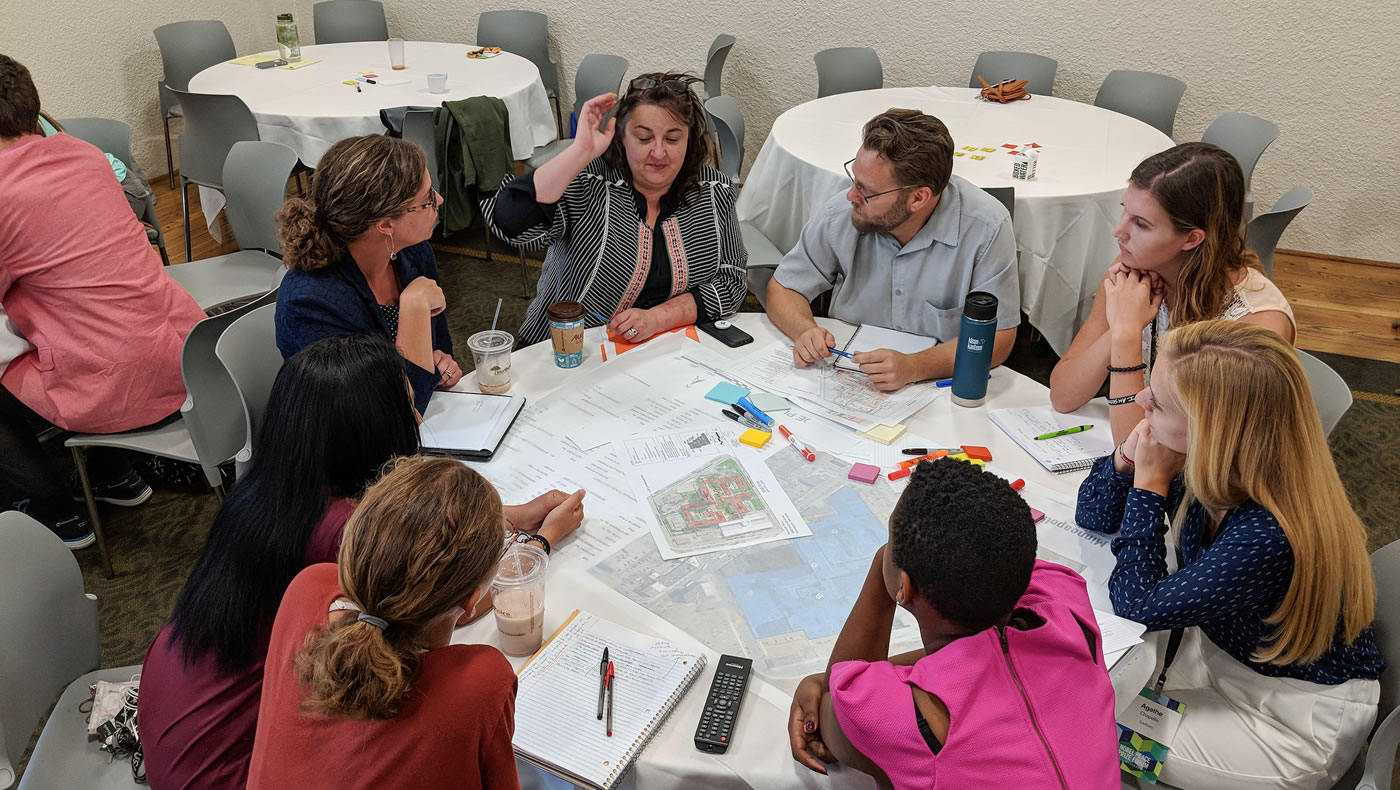
In order to begin real work toward the 25 by 25 goal with the property owners, the MWMO and Augsburg staff put together a series of workshops during the summer of 2018. These events brought property owners and managers together with researchers, designers, engineers, city officials and other water resources professionals. Workshops were held at the MWMO and Augsburg. Participants pored over maps and site information and analyzed costs and benefits of different approaches to stormwater management at each property. These workshops formed the beginning of a “community of practice” that would provide support, resources and accountability for property managers in their efforts to adopt stormwater best management practices.
By the time the Forum rolled around in September, property owners had been engaged in workshops for three months. Potential stormwater management projects began to emerge at Riverside Plaza, the iconic colorful concrete towers at the intersection of Cedar Avenue and Riverside Avenue, as well as at Augsburg University and the University of Minnesota’s West Bank Campus. At the Forum, representatives from each of these properties had the opportunity to showcase the work that they had done throughout the summer and solicit additional ideas and feedback.
They were then asked to think beyond their own properties to consider how their stormwater management plans would interact with those of their neighbors — and how they would ultimately benefit water, the local environment and the thousands of people who live, work and study in the Cedar-Riverside neighborhood. Considering these questions helped all of the stakeholders understand the collective impact of their work and tie their efforts to the work of the Nobel laureates who called for collective responsibility and action.
Next Steps: Supporting and Maintaining a Community of Practice
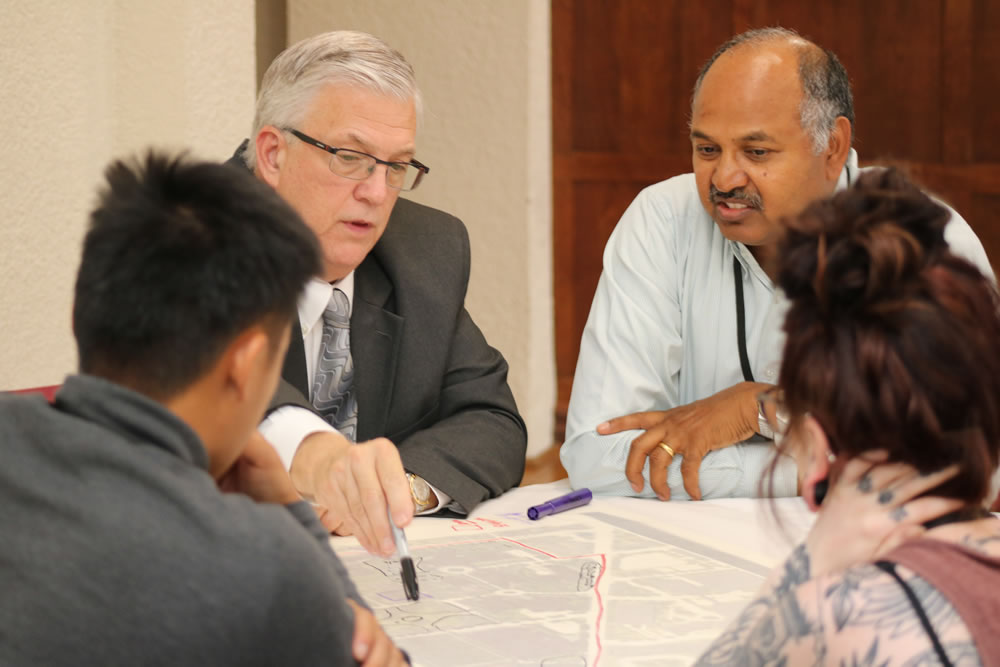
Overall, property owners and other stakeholders stated that they learned a lot and felt motivated and energized by their participation in the workshop series and the Nobel Peace Prize Forum. Each property owner left the final workshop with an action plan that they can use as their roadmap as they continue to move toward their stated goals. From an engagement and educational standpoint, the workshops were a great success. Now, the challenge will be finding ways to provide support, resources and accountability to keep them moving.
The next step will be continuing to develop and maintain a community of practice among the various participants in the workshop series. In the coming months, Augsburg and the MWMO will be working to define and implement a model for this community of practice that includes strengthening connections among group members and increasing access to information, resources and expertise. With good support, we believe that this group will be successful. We look forward to seeing these property owners lead the way in community-led stormwater management efforts.
